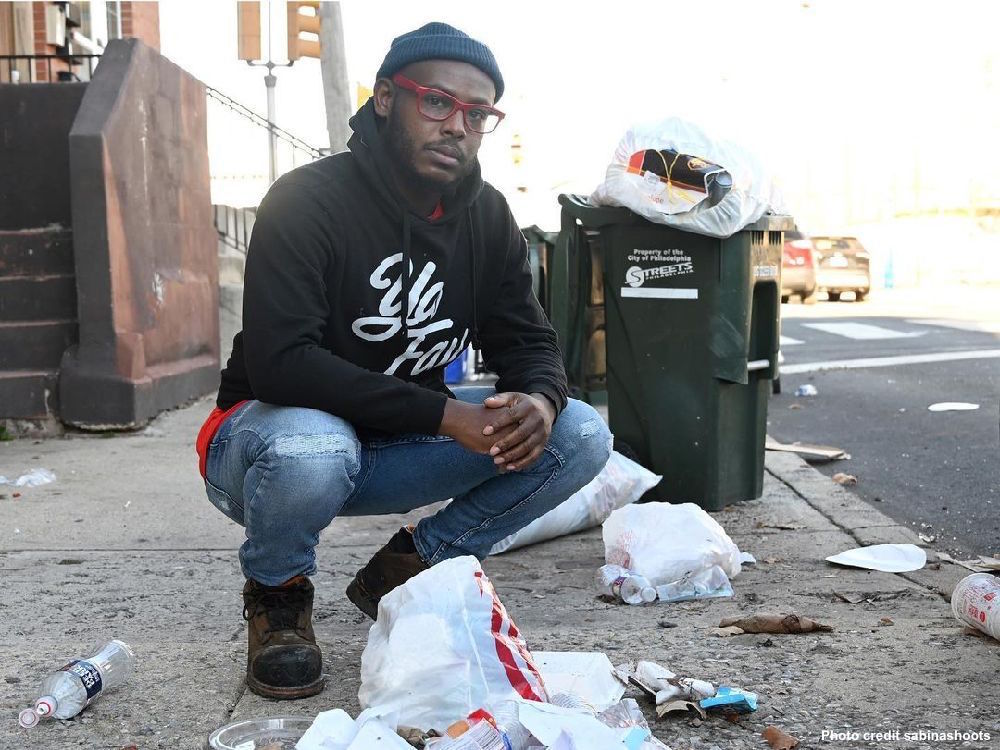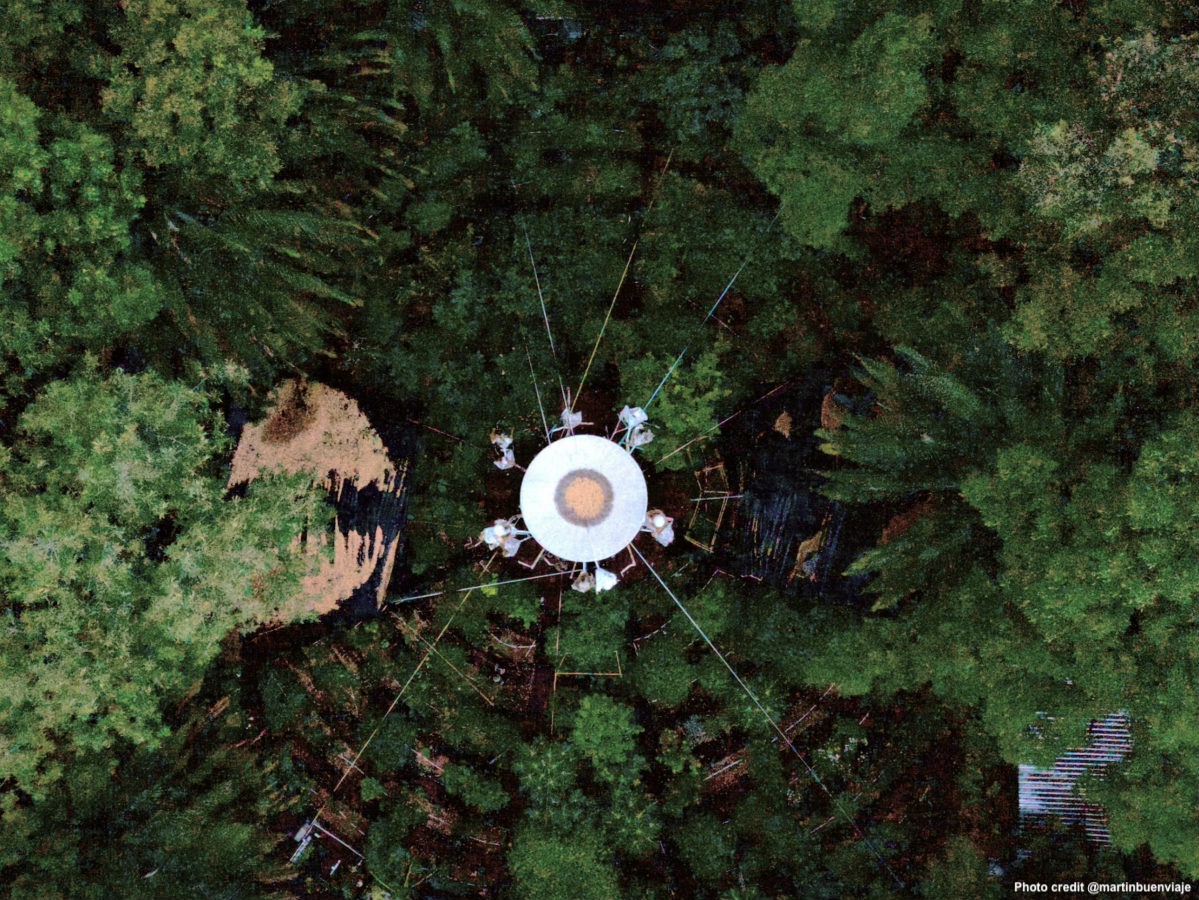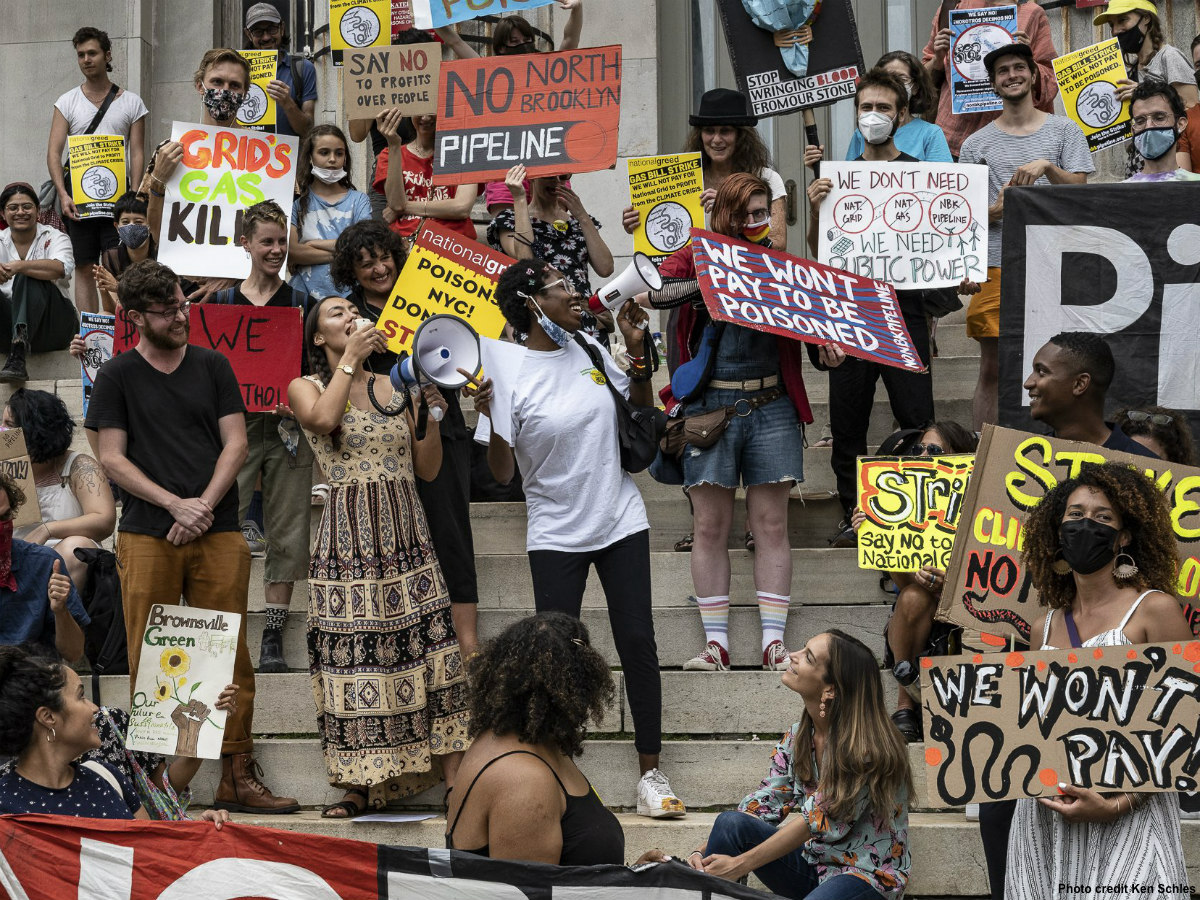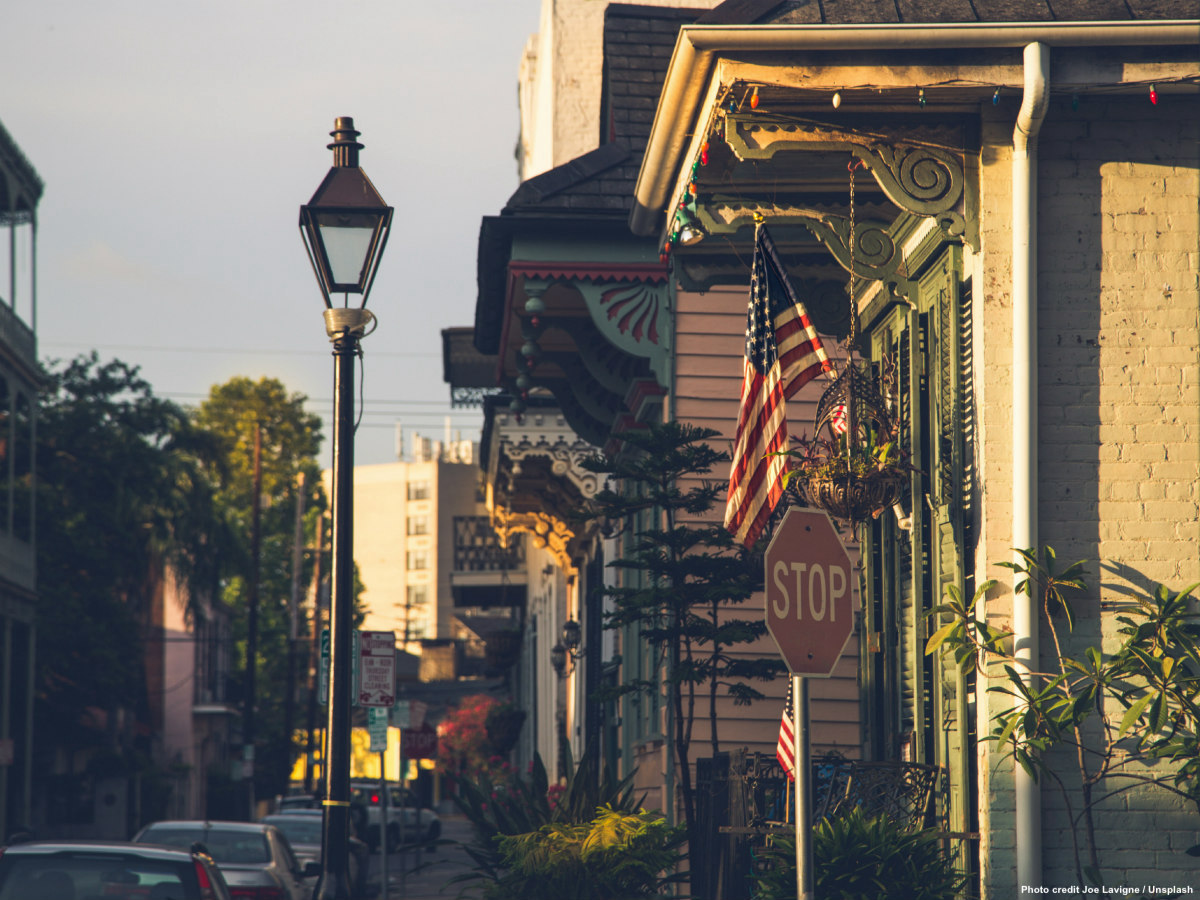This month has seen the release of deeply worrying metrics in the IPCC report that underline the climate catastrophe our society will face. It is more worrying, though, to see how solutions to dampen the negative impact of urban life on the environment have stalled. One is the apparently easy to resolve problem of littering in our cities. The city has been in an uproar with trash since its existence.
Some people go about their lives as if sidewalk trash is just aesthetic, while others feel morally compelled to sound the alarm with cleanups and small actions in their neighbourhoods. As we head to Earth Day I deliberately spoke with cleanup activists from Philadelphia and New York to Onitsha in Nigeria, one of the most polluted cities in the world. Their trash problems face different realities, but at the same time they remarkably share invidious choices related to poverty and justice. Yet the problem of littering has a common victim, the planet, and ultimately it affects all of us.
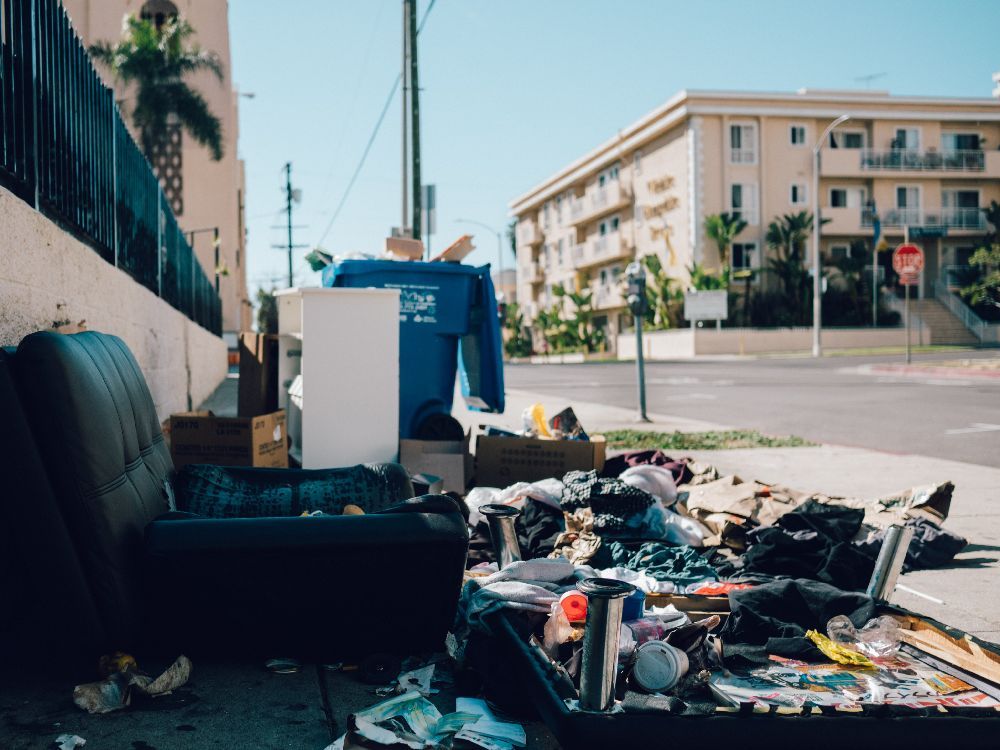
In our streets the environmental catastrophe starts with uncontrolled trash and illegal dumping that amazingly finds its way from the asphalt to the natural environment. Plastic pollution and climate change do not compete, find scientists, both crises occur throughout the marine environment and their root cause is the same, the overconsumption.
Activist Terrill Haigler, aka Ya Fav Trashman, argues that poverty and litter go hand in hand to the very basics such as not enough trash receptacles. Haigler was an anonymous sanitation worker and civil servant in the city of Philadelphia but his dedication to fight littering —organising community cleanups in the streets and sharing protest videos in social media— has gained him credit because he has been able to reach ordinary people on the trash issue.
Litter on the ground is the direct result of the lack of environmental justice. If everybody was environmentally aware and conscious Philadelphia wouldn’t have been named the dirtiest city in America in 2020, claims Haigler.
For a city that claims to spend a significant budget on fighting the problem of littering and dumping, sometimes it all comes down to basic things, like having enough trash receptacles in public spaces. “I think in certain areas of the city there is an ample amount of trash cans and then in the other parts there is a severe difference. We need to get the basic resources equally around every ZIP Code in Philadelphia.”
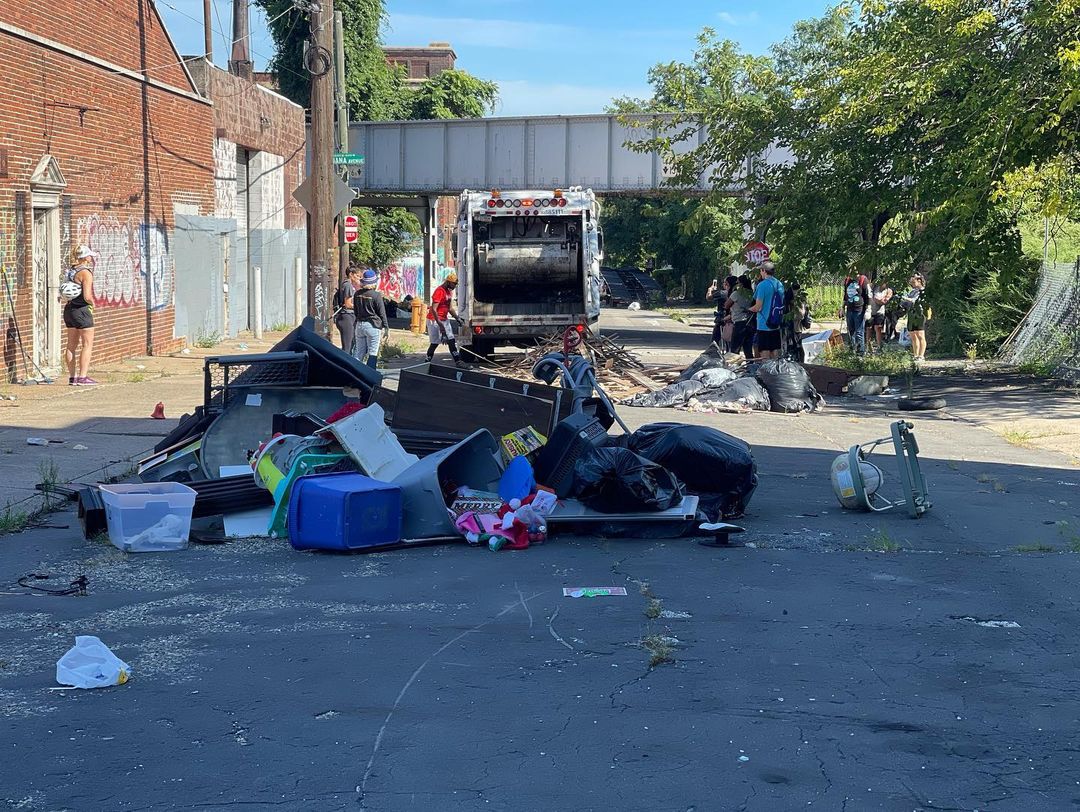
In addition, some disadvantaged neighbourhoods in Philadelphia suffer trash collection delays. But Haigler could use his influence working in the Sanitation Department to get access to the city’s garbage trucks when organising a cleanup. It is decisive for cleanups to have “that truck to come in and pick up the trash”.
“At least someone gave him listening ears,” says Nigerian cleanup activist Chris Anaekwe. Across the Atlantic the streets of Onitsha, Nigeria, face a similar fate but the problem is compounded by a complete failure of the trash collection system and the lack of political power of communities to fight for a system that works. Here nearby trash receptacles are too disruptive to the lives of people. “In my neighbourhood nobody wants trash bins in front of their houses or businesses because they are afraid that if the sanitation department doesn’t show up to empty them, often the case, they will have piles of trash at their front door,” explains Anaekwe.
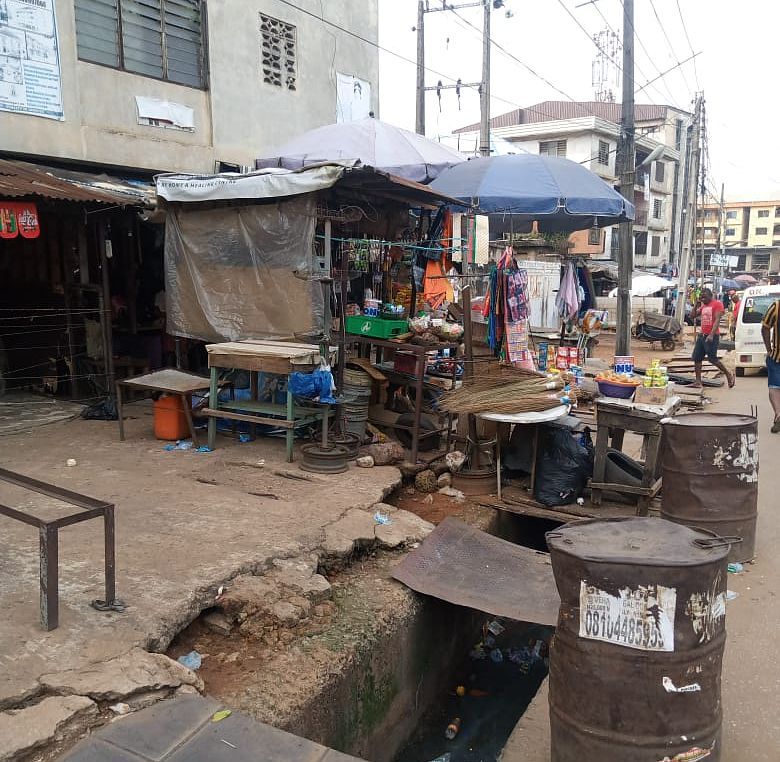
On 9th April the governor of the state of Anambra, where Onitsha is located, declared a public holiday for a clean up of the streets across the state. Days before the popular Nigerian comedian Lord Zeus 101 posted a video on facebook denouncing the amount of trash in the streets across the state. The general cleanup day declared by the government brought hope to environmental activists like Anaekwe who mobilised his friends to clean up the gutter along their street called Egerton Road. High time. But when it seemed that the state government had finally acknowledged the problem of littering, hope turned into deception again.
The government promised to provide vehicles that will come and carry the trash to dump sites. But what did they do? They cleared the areas where the comedian was filmed, took pictures for political score and left, explains Anaekwe sadly.
The trucks supposedly to pick up the trash after a hard cleanup day never showed up in Anaekwe’s neighbourhood. People were really annoyed, he claims. “Why are they telling us to sit at home and do the clean up if they knew they couldn’t provide vehicles to come and clear the trash? It is quite disheartening to tell you,” continues Anaekwe, “that in my community we use strategic corners in residential areas as dumping sites where a big container is located. But the problem is that when it gets filled up, it takes up to a month before the waste management team comes to empty it.”
The people of Onitsha have been disaffected by the government’s inaction. Yet citizens are required to pay a fee for waste disposal, therefore illegal dumping becomes a common practice. People use the gutter – where the water runs in the rainy season – to dispose of any kind of garbage, including plastic bottles. A lot of them. The overconsumption of beverages packed in plastic grows exponentially in a country where you can’t trust tap water. People are trapped in a vicious circle of plastic consumption. When it rains, the water flush all the garbage down to the river Niger. According to the World Economic Forum, 90% of plastic polluting our oceans comes from just 10 rivers. The Niger river is one of them.
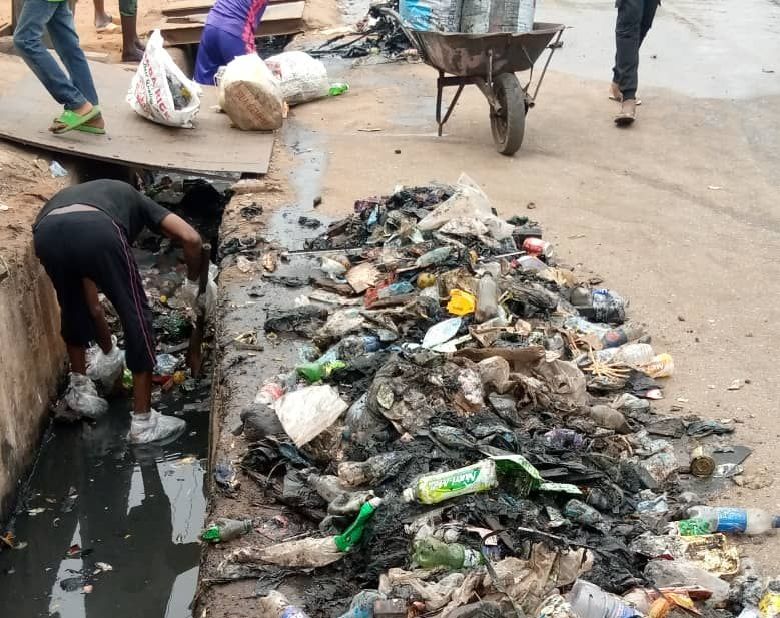
Anaekwe has tried to organise a truck to pick up the trash and take it to the big container a couple of streets away, but the implementation of any kind of rudimentary trash system struggles with the lack of financial resources. He claims that it is not sustainable to have volunteers doing cleanups in the long term and that the job is supposed to be that of the sanitation department. In Philadelphia Haigler has partnered with Morgan Berman, founder of the app platform Glitter where Philadelphia residents can pay for cleaning in their area, report litter, apply to be a paid cleaner, or learn more about local cleanup events. Could this be a solution for Onitsha?
Onitsha’s trash nightmare is a model failure of how the world is not capable of tackling the problem of littering at its core which could save the ocean from so much plastic. In other cities with exemplary canalization systems, excessive street litter also increases flooding when storm drains become clogged up with trash which can cause damage to businesses and residential buildings. Therefore sanitation departments in many coastal cities discharge water to the ocean, taking trash with them.
In New York environmental activist Nicole de Santis, co-founder of Clean Bushwick Initiative in Brooklyn, tells me that the problem of littering is such a complex issue that is tied to our physical health, our mental health, government policies and more. Something that Haigler corroborates: “your mental health and emotional state is directly affected by your environment. Studies show that people who wake up and litter neighbourhoods with short dumping everywhere they feel depressed, they feel unworthy, they feel forgotten.”
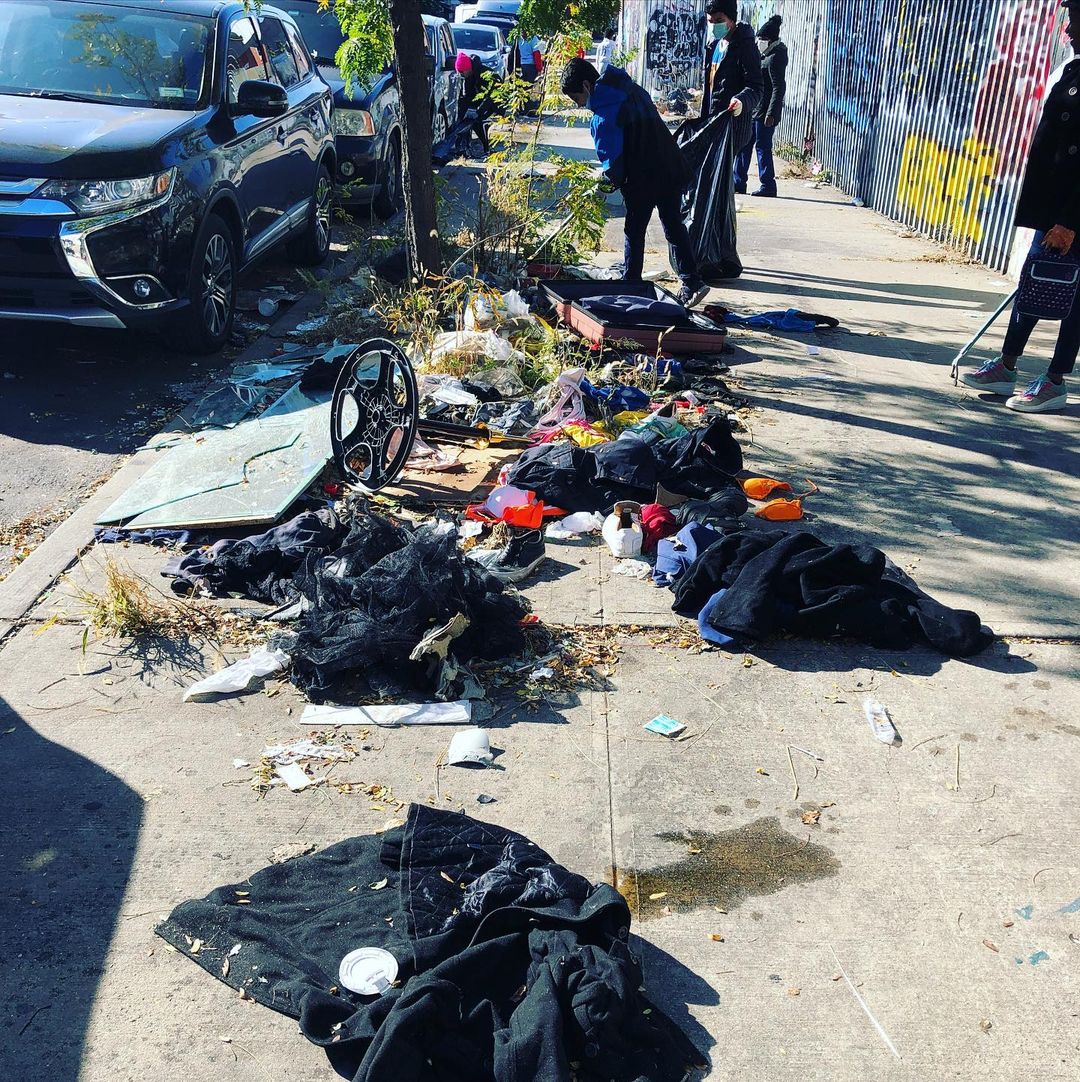
De Santis explains that certain neighbourhoods, especially lower income, black and brown neighbourhoods, are often more noticeably dirty and lacking in services; they are often situated in areas closer to highways, incinerators and more prone to illegal dumping (especially more industrial areas). Redlining policies of the past that restricted services to black and brown areas are also still impacting these neighbourhoods today.
Sanitation Departments have an almost impossible task ahead of them to remove the endless garbage that we create, says De Santis. In New York residents and businesses often misuse trash receptacles on the streets to dispose of residential and commercial waste, which is illegal but some New Yorkers justify it with the fact that New York doesn’t leave room for dumpsters on side streets as compared to other cities. Instead, trash is dumped every day on the sidewalks for regular collection.
So while regular corner basket sanitation pickups are vital to keeping our city clean, I am not convinced that the issue is a lack of receptacles. Instead I believe the real issue is our addiction to single use items (especially plastics) and the improper use of the receptacles, explains De Santis.
Simply put, we just create too much trash, and many individuals, and business owners improperly dispose of trash. The consequences of the problem of littering are very challenging issues to resolve without education, legislation and enforcement, says De Santis. “Illegal dumping is especially hard, and hard to enforce, but cracking down on construction sites and the owners of abandoned lots would be a good start. Teaching kids about the impacts of litter and other environmental issues at every grade level is imperative. In New York landlords and business owners are responsible by law for cleaning the front of their buildings (or businesses) and 18 inches out into the street, more enforcement and higher fines would be one step.”
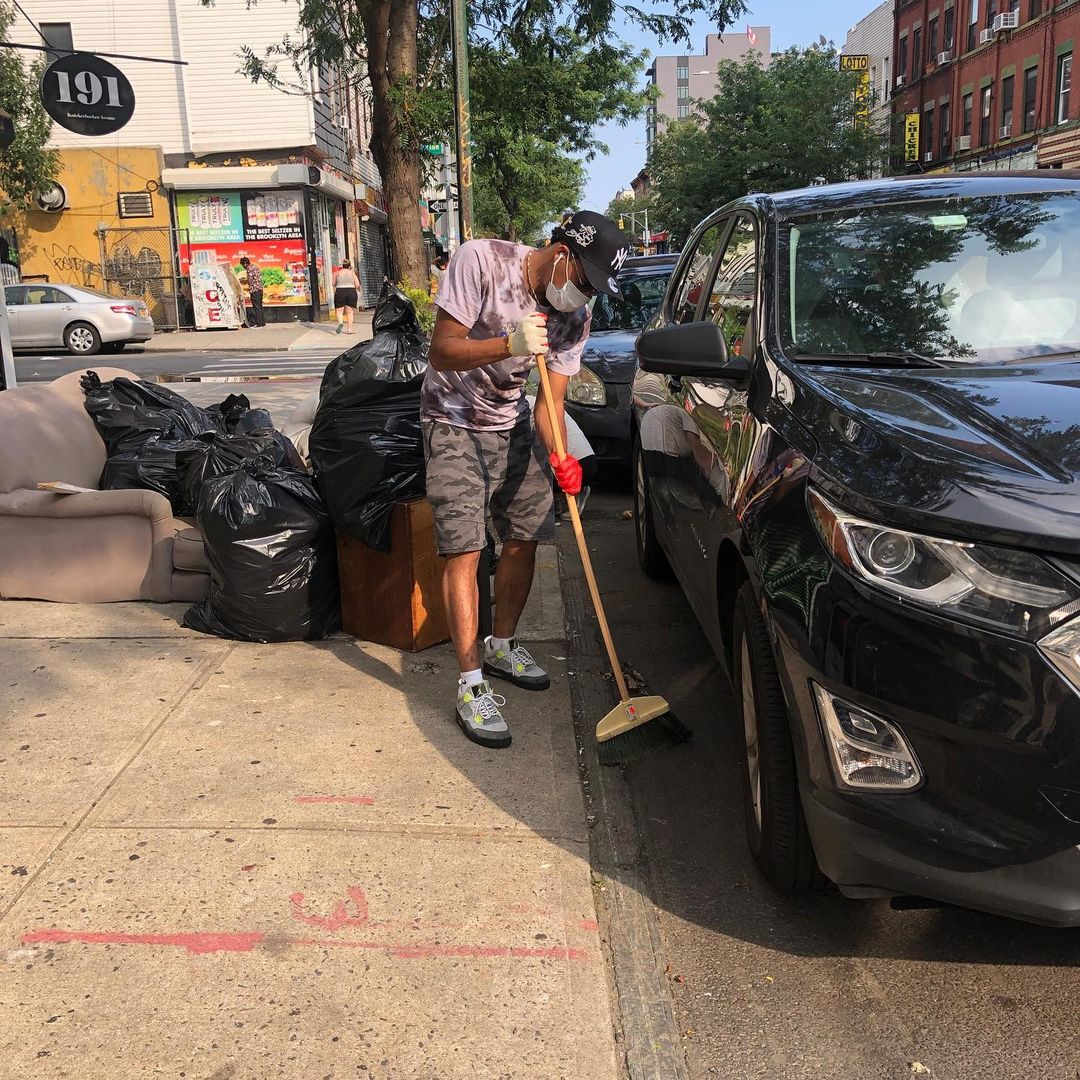
De Santis brought my attention to the popular instagramer Anna Sacks AKA The Trash Walker, who wanders the streets of New York showing any kind of items, electric devices, clothes, in many cases entirely new, that people and businesses throw away. In Onitsha, this type of overconsumption would be an absolute luxury.
No matter how well cities represent the best practices of trash collection around the world, none of them would be novel as long as the problem of littering persists and trash keeps reaching oceans and rivers in astronomical numbers like in Onitsha. Rising to the challenge of littering requires substantial change around the world. In a city that can’t even reliably pick up residents’ trash, change begins with expecting more like access to tap water, dampening over consumption, claiming environmental justice in black and brown neighbourhoods and so on. The different challenges in cities are connected by the endless problem of trash. In the meantime, the planet is suffering.
